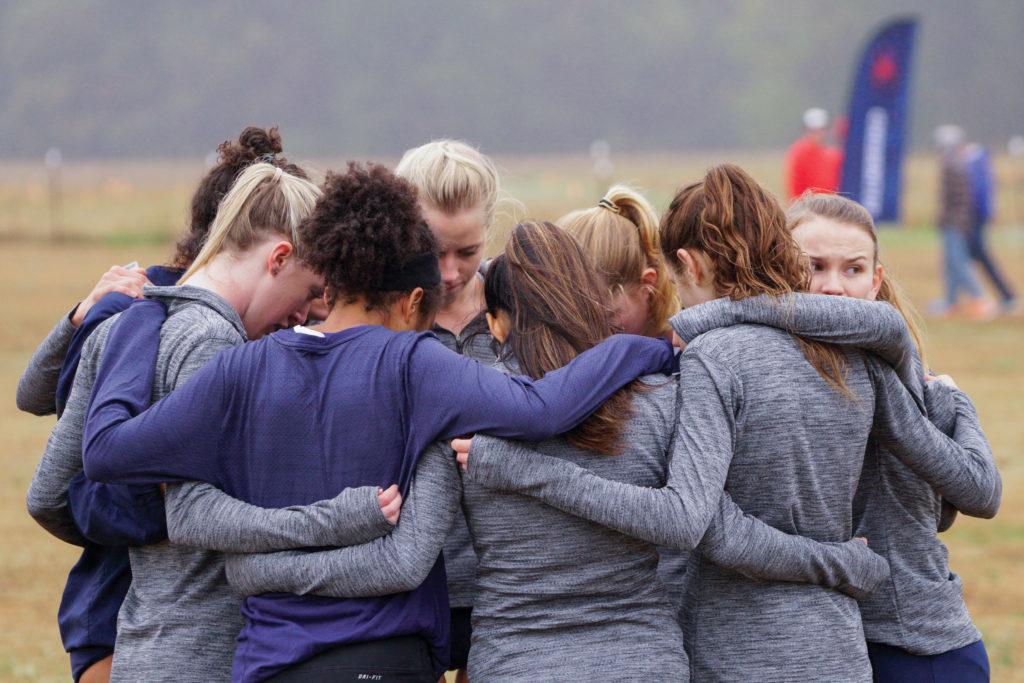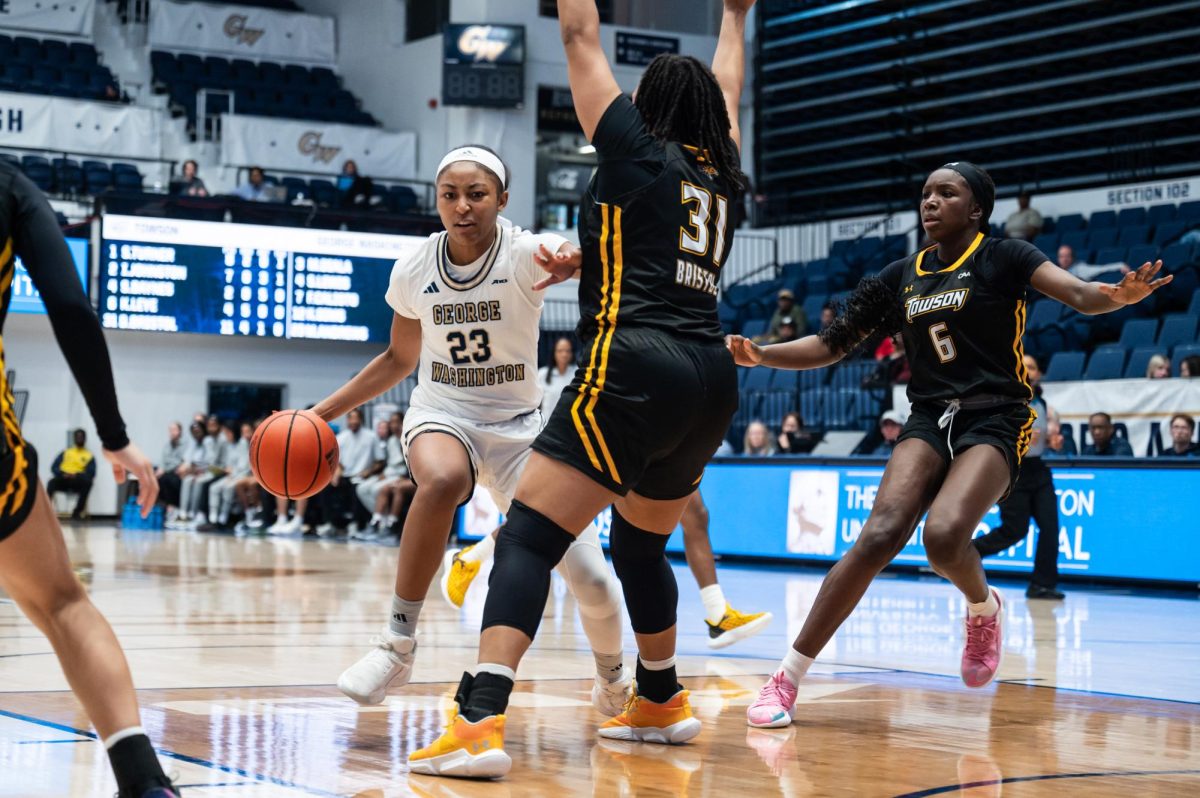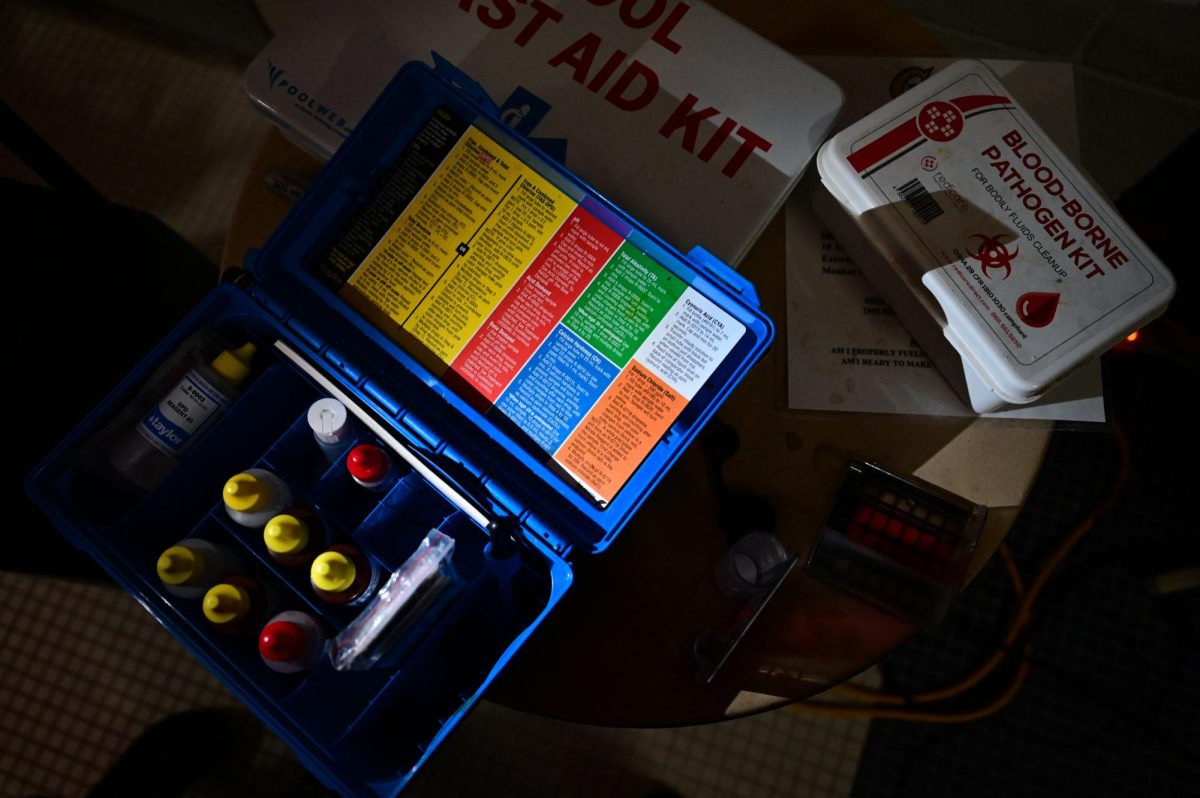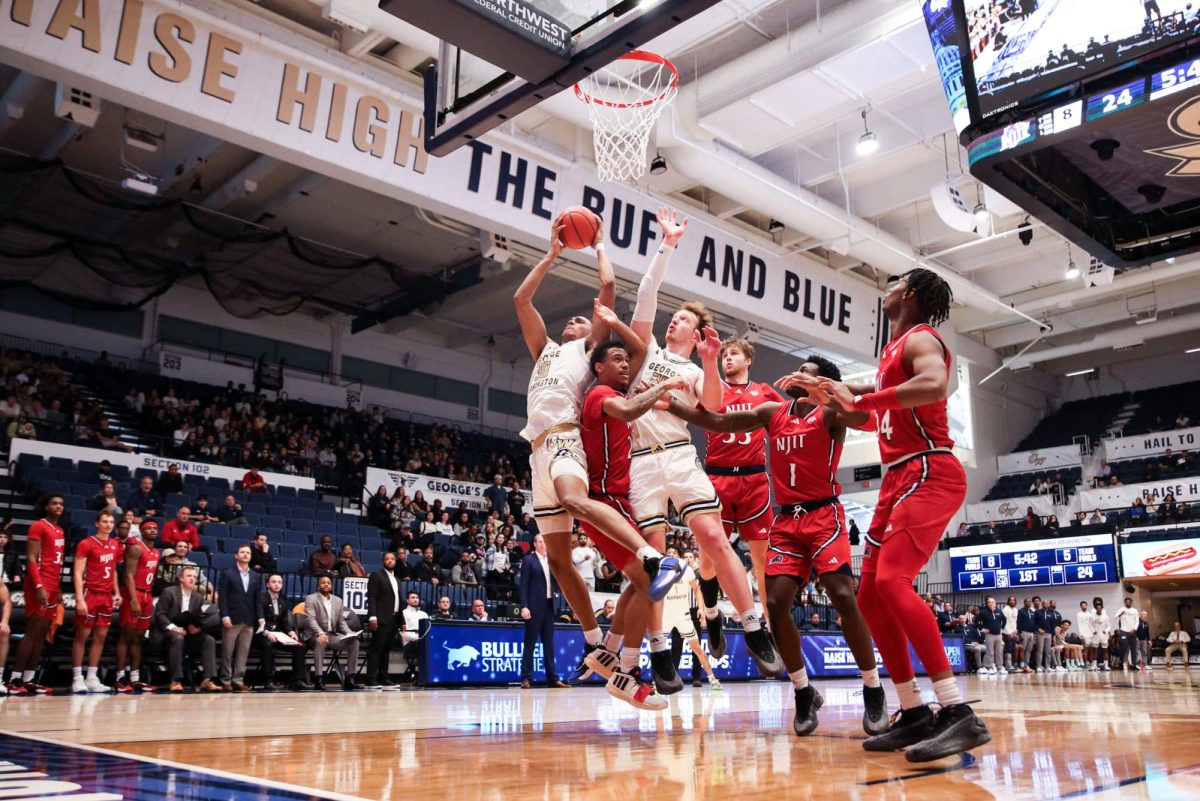Updated: Sept. 3, 2019 at 4:46 p.m.
When women’s cross country opened its season at the Mount St. Mary’s Duals Friday, there was one noticeable difference from last year: the team’s size.
With 13 runners rostered for the 2019-20 season, the Colonials are facing a slate of competitions with the fewest team members since 2013. Runners said a smaller squad could result in less team depth, but consistent health and strong sportsmanship will carry them through the season.
This season marks the second campaign in a row that GW has reduced its roster size. From the 2015-16 to 2017-18 seasons, GW rostered 22 each season. But that number dropped to 17 last season and fell again to 13 this year.
The Colonials are also undersized compared to the 13 other Atlantic 10 Conference teams that average about 19 runners on their rosters.
“It’s no secret that we’re a smaller team this year, which from the outside perspective could seem like a weakness,” senior runner Suzanne Dannheim said. “But from the way the team’s coming at it and our experience so far, I think it’s actually a strength.”
Following VCU’s eight-member roster, GW has the second smallest women’s cross country team in the A-10. Five programs have 20 or more runners, and Richmond leads the pack with 36 rostered runners.
Dannheim, who came in third place at the Mount St. Mary’s Duals Friday, said a smaller team promotes better communication between runners and ensures every member is fully supported.
“It’s a lot easier to get together, to communicate, to travel, to just be a unified team when you have fewer people,” she said. “Everyone knows everybody really, really well. There’s no hiding, there’s no chance for anyone to slip through the cracks.”
Last season, GW had middling showings in the postseason, placing seventh in the conference championship and 14th in the NCAA Mid-Atlantic Regional. The Colonials enter this season with their highest regional ranking in program history, placing ninth in the preseason Mid-Atlantic Region Coaches’ Poll.
Dannheim, who had a breakout junior campaign, is one of the nine returners to the team. The squad lost six seniors to graduation last spring, including Madison Yerke, Brigid Prial and Halley Brown, who were high finishers for the Colonials.
This season, Dannheim said the team is focusing on creating an environment where each runner is trusted and held accountable during practice and in competition.
“When everyone knows everyone, there’s a lot of trust and accountability that builds up, and that’s what we’re working for this year,” Dannheim said. “Those things just make you a better team.”
Junior runner Kathryn Nohilly said the smaller numbers could cause issues for GW down the line since the team no longer has extra runners to swap in when someone faces injury or fatigue.
“We just really need to focus on keeping everyone healthy because we can’t really afford to have too many injuries or sicknesses,” Nohilly said. “That’s going to be the toughest challenge there.”
Nohilly said the team has emphasized getting enough sleep, proper warmups and strength training ahead of the season because of the smaller team size.
“We do a lot of rope stretching and warmups to make sure we’re good before we go, so we’re taking all the necessary steps,” Nohilly said.
The team spent the summer focused on training and maintaining physical health. The squad upped its mileage and workout intensity to start the season stronger, Nohilly said.
Nohilly said the smaller team size allows the runners to spend more time with one another, improving the overall team dynamic and making each member feel more supported.
“Having a small team is better and almost really good for us because it makes us really tight-knit, and that’s so important for cross country because cross is such a team sport,” Nohilly said.
Nohilly said a smaller squad better facilitates team bonding because the entire team can travel and attend meets, which is often not possible for larger teams.
“A lot of us get to go to every single meet, which is different than normal, so I think that will just be really good for the team dynamic and that will make us better competitors,” Nohilly said.
Emily Maise contributed reporting.
This post was updated to reflect the following correction:
On one reference, The Hatchet incorrectly spelled Kathryn Nohilly’s name. It is now spelled correctly. We regret this error.





